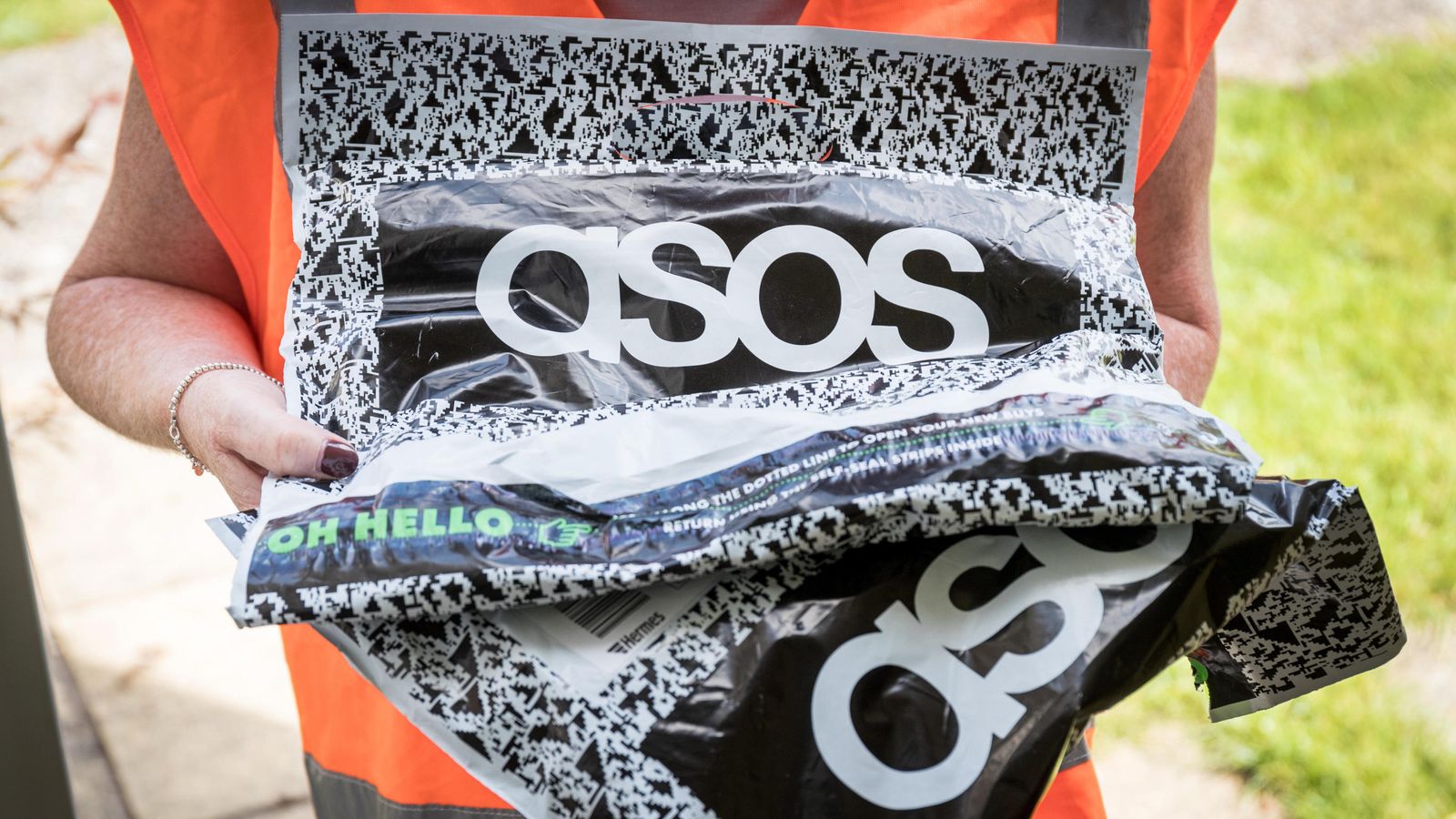ASOS shares fell more than 5% on Tuesday morning, a further drop in a year where stock already lost 38% in value, after company results showed sales contracted.
Sales fell 15% in the three months to the end of September, compared with the same period a year earlier, meaning sales for the last year fell 11%.
Wet weather in July and August was blamed – echoing the reason official figures showed retail sales fell in July.
But ASOS’s fall in sales was far sharper than the overall drop in consumer spending: retail sales contracted 1.1% in July and grew 0.4% in August. Figures for September are not yet available.
Please use Chrome browser for a more accessible video player
And while July was one of the wettest in UK history, it did bring online sales to the highest level since the pandemic.
Blame for the online giant’s weak performance was also placed at the foot of a “deterioration in the UK clothing market”.
Not all corners of the clothes market, however, have faired poorly. UK rivals such as Next and Primark have upgraded their profit outlook in their latest announcements.
Met Gala latest: Celebrities appear at biggest night in fashion – but Karl Lagerfeld theme is still controversial
The Rana Plaza factory collapse: 10 years on, how much has changed?
Dame Vivienne Westwood: Victoria Beckham and Kate Moss among stars at fashion designer’s funeral
ASOS on Tuesday said its earnings will be on the lower end of forecasts – between £40m and £60m.
But the picture was not all poor. Order profitability was up 35% as the company began charging for customers to return items and restricted buy now pay later (BNPL) options.
Fewer items are being returned, the results said.
Following the results ASOS’s share price dipped to as low as 361.35p, before recovering later in the day to 380.68p
The company had been valued at more than £6bn in 2018, greater than the value of high street competitors Marks & Spencer and Next.
Read more
Asos turnaround pace frustrates fast-fashion firm’s investors
M&S returns to FTSE 100 as investors cheer turnaround progress
Waterstones backer Elliott among suitors for The Body Shop
Be the first to get Breaking News
Install the Sky News app for free
The problem is the broader economic climate, said AJ Bell’s investment director, Russ Mould.
The wet weather “merely exacerbated a situation where its customer base has less disposable income to expend on items they may only wear a handful of times”.
“In terms of what the company itself can control it is doing a reasonable job – reducing inventory by more than expected, albeit through heavy promotional activity, and keeping a tight rein on costs,” he said.
“The danger for ASOS is it is just no longer as relevant in a world where people can buy clothes in stores again and where the tide has turned away from the whole fast fashion concept.”












